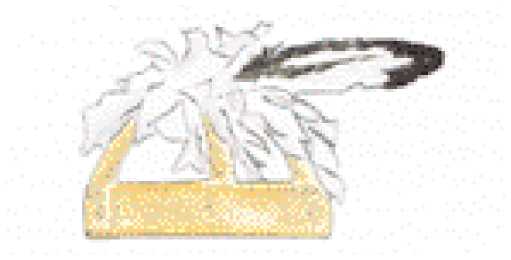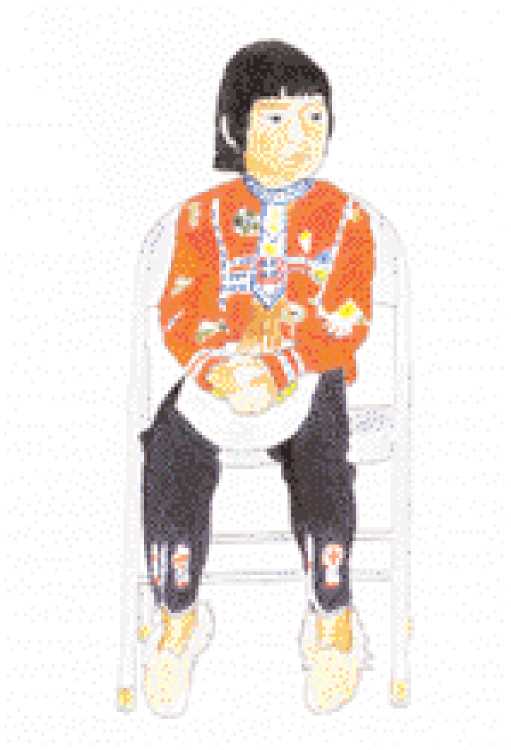The Cayuga, one of the five original tribes in the Iroquois League, had cultural traits in common with other Iroquois (haudenosaunee). Yet the Cayuga were a distinct group of NORTHEAST INDIANS with their own villages, leaders, and traditions.
The Cayuga ancestral homeland is located in the Finger Lakes country of what now is New York State, especially along the longest of the lakes (38 miles), Cayuga Lake, named after them. Sandwiched between the SENECA to the west and the ONONDAGA to the east, the Cayuga controlled the smallest expanse of territory of all the tribes in the Iroquois League (or Iroquois Confederacy). They had at least 13 important villages. Since many of these villages were near wetlands, the Cayuga, pronounced kah-YOO-guh, were known as the “people of the great swamp.” The native version, Guyohkohnyoh, also has been translated as “people of the place where the boats were taken out,” referring to a town, Oioguen, or “people of the place where locusts were taken out.” The Cayuga sent 10 sachems, or chiefs, as tribal representatives to the confederacy’s Great Council. The Cayuga totem, or symbol, at the annual gathering was the Great Pipe.
In 1774, the year before the American Revolution, Iroquois living on the Ohio and Scioto Rivers in Pennsylvania, known as the Mingo band, joined the SHAWNEE in their fight against the British in Lord Dun-more’s War. The Mingo chief Logan was a Cayuga.
During the American Revolution, when the various Haudenosaunee tribes chose sides, most Cayuga sided with

Cayuga headdress (Different Iroquois tribes used varying numbers of feathers.)

An Iroquois boy of the Six Nations
The British, along with the MOHAWK, Onondaga, and Seneca, against the American rebels. Their former allies, the ONEIDA and TUSCARORA, opposed them. After American victory in the war, many Cayuga migrated to Ontario, Canada, where they were granted territory along with the Mohawk and other Iroquois who had sided with the British. Their shared lands at Oshweken on the Grand River is called the Six Nations Reserve. Other Cayuga settled among the Seneca and Onondaga in New York. The Seneca-Cayuga Tribe of Oklahoma is a federally recognized group in Ottawa County, Oklahoma.
Cayuga representatives recently negotiated a land claim with New York State. In 2000, because of lost lands, violated treaties, economic loss, and interest owed, the state awarded the Cayuga almost $250 million.
As the Cayuga Peter Wilson (Wa-o-wo-wa-no-onk) communicated to the New-York Historical Society in 1847 about ancestral lands:
That land of Ganono-o—or “Empire State” as you love to call it—was once laced by our trails from Albany to Buffalo—trails that we had trod for cen-turies—trails worn so deep by the feet of the Iroquois that they became your own roads of travel. . . . Your roads still traverse those same lines of communication and bind one part of the Longhouse to another. The land of Ganono-o, the Empire State, then is our monument! We shall not long occupy much room in living. The single tree of the thousands which sheltered our forefathers—one old elm under which the representatives of the tribes were wont to meet—will cover us all. But we would have our bodies twined in death among its roots, on the very soil on whence it grew. . . . In your last war with England, your red brother—your elder brother—still came up to help you as of old on the Canada frontier. Have we, the first holders of this prosperous region, no longer a share in your history? Glad were your fathers to sit down upon the threshold of the Longhouse, rich did they then hold themselves in getting the mere sweeping from its door. Had our forefathers spurned you from it when the French were thundering at the opposite side to get a passage through and drive you into the sea, whatever has been the fate of other Indians, the Iroquois might still have been a nation, and I, instead of pleading here for the privilege of living within your borders—I—I might have had a country!




 World History
World History









